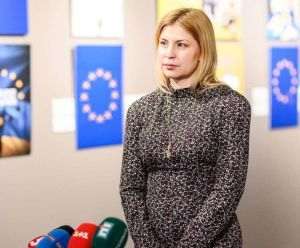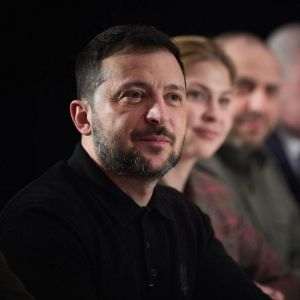A violent incident in Chernivtsi, northern Ukraine, has once again brought to the fore the tense relations between the Romanian community in the region, the authorities in Kiev and the Orthodox religious structures in Ukraine. The conflict erupted between representatives of the Ukrainian Orthodox Church (UPT), historically affiliated with the Moscow Patriarchate, and members of the Ukrainian Orthodox Church (UOC), an autocephalous entity recognized in 2019 by Ecumenical Patriarch Bartholomew and supported by the Ukrainian government. According to witnesses and images appearing on social media, several masked young men - allegedly affiliated with the UOC - stormed the "Descent of the Holy Spirit” Metropolitan Cathedral in Chernivtsi, a symbolic place of worship for Romanians in the region. They allegedly physically assaulted priests, destroyed religious objects, and one of the religious leaders of the UPT, Metropolitan Meletie, was allegedly hit in the head. The police intervened, but blocked access to other Romanian believers, who had come in large numbers to defend the cathedral. Tear gas and fire extinguishers were used, according to eyewitnesses.
• A cathedral with a profound Romanian significance
The cathedral affected by the violence is an important symbol for Romanians in Northern Bukovina, built at the initiative of Eudoxiu Hurmuzachi and bearing an inscription in Romanian at the entrance: "One in three hypostases God". Services are also held here in Romanian, an aspect considered essential by the community for maintaining cultural and religious identity.
• Escalation of confessional tensions in a geopolitical context
The religious crisis in Ukraine was triggered in 2018, when, amid the conflict with Russia, the Ukrainian authorities supported the formation of a new autocephalous Orthodox church (AOC). Although the Ukrainian Orthodox Church (UOC) publicly separated itself from the Moscow Patriarchate after 2022 and no longer mentions Patriarch Kirill, the authorities continue to intensify the process of forced transfer of parishes under the jurisdiction of the AOC, including in areas with Romanian communities.
• AUR: "The rights of Romanians are systematically violated”
In a reaction, the Alliance for the Unity of Romanians (AUR) launched a public appeal demanding the firm intervention of the Romanian state, denouncing the abuses of the Ukrainian authorities. According to AUR: Romanians in Ukraine must enjoy rights guaranteed by international treaties; The Romanian language must remain a channel of communication with the Ukrainian state, not a reason for alienation; The lack of reaction from the Romanian authorities and the pressure exerted by the SBU on Romanian priests who requested direct affiliation with the Romanian Orthodox Church risk fueling nostalgia for the Soviet era and sympathy for Russia among local communities. AUR claims that Romanian priests and parishioners have been threatened with being sent to the front if they do not abandon their efforts to affiliate with the BOR, in the context in which the request for official recognition of the "Romanian Orthodox Church in Ukraine” has been administratively blocked by the authorities since 2023, although it complies with local legislation.
• Political implications and regional risks
Emil Hurezeanu, the acting Minister of Foreign Affairs, stated regarding this incident: "We are frequently informed about the local tensions in Chernivtsi and the relations of religious communities within the Romanian community, because not all members of the Romanian community, not all churches, not all parishes, not all priests, not all parishes have the same relations. Some are Romanian priests, parishes belonging to the Russian Orthodox Church. There are intentions to create a branch of the Romanian Orthodox Church. There is also the Ukrainian Orthodox Church. According to our knowledge, the conflict in the church, in Chernivtsi, is not between priests and Romanian citizens.” The conflict in Chernivtsi is not just a religious one. It touches on sensitive issues regarding ethnic identity, religious freedom and minority rights, in a state in the midst of war and with accentuated European aspirations. According to AUR, the marginalization of the Romanian minority in such a context could have dangerous geopolitical effects, including favoring Russia's propaganda narratives. AUR publicly calls for: Clarifications from the Romanian Presidency regarding the inclusion of this topic in bilateral discussions; Conditionalization of support for Ukraine's integration into the EU on respect for the rights of the Romanian minority; Constant monitoring of the situation through parliamentary interpellations and international monitoring.
The recent events in Chernivtsi reflect a profound crisis of trust between the Romanian community in northern Ukraine and the Ukrainian state, in a context in which religious and ethnic identity dangerously intersect with political and military dynamics. The situation calls for a firm diplomatic approach from Romania and an urgent reassessment of the ways in which minorities are protected in a candidate state for European integration.
















































1. fără titlu
(message sent by ukrainian on 23.06.2025, 15:17)
Classic case of post-2014 minority disrespect by our government. Sad